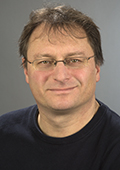Universitaetsklinikum Hamburg-Eppendorf (UKE)

Partner description and expertise
The Universitaetsklinikum Hamburg-Eppendorf (UKE) is a clinical centre with long-standing expertise in the diagnosis and management of neuronal ceroid liopfuscinosis (NCL). The institution is an internationally acknowledged clinical reference and diagnostic centre for all NCL diseases and has a specialised NCL clinic where more than 120 NCL patients are seen per year. The NCL clinic, led by Dr. Schulz, is part of the International Centre for Lysosomal Diseases (www.icld-amburg.de) at the University Medical Centre in Hamburg. The ICLD provides complete diagnostics for all NCL forms. In addition, the established NCL clinic provides specialised interdisciplinary care for these rare diseases.
Role in the project
UKE will lead WP4, which aims at recruiting NCL patients, collecting longitudinal patient data on clinical scoring, brain volumetry, psychiatric phenotype, cardiac phenotype, electrophysiology and crises in natural history. UKE will also coordinate patient sample referral and collection for WP3. UKE will contribute to WP1 and WP2 by providing CLN7 knockout mice for comparative studies and metabolomics analyses and will work on the characterization of altered biochemical pathways, CLN7 disease specific mechanisms and dysregulated lysosomal proteins in CLN7 disease, as well as on identifying potential CLN7 substrates. In addition, UKE will also participate to the work of WP2 by looking into compartimental-linked pathomechanisms in CLN3 disease, identifying and quantifying the total lysosomal components altered in both neuronal and glial CLN3-defestive cells, using these altered parameters to evaluate the impact of experimental rescue approaches for reversibility (mimicking therapeutical interference).
Dr. Angela Schulz is a paediatrician and has run the NCL clinic at the UKE Children’s Hospital for more than 10 years. She is one of the group leaders of the NCL research group. Dr. Schulz has coordinated the European FP7-funded collaborative research project DEM-CHILD (funding period 10/2011-09/2014) where she has been leader of a work package for epidemiology and natural history studies in NCLs. Main achievement of this work package has been the development of a DEM-CHILD NCL patient database. As WP lead of WP4, Dr. Schulz will coordinate and perform the recruitment of NCL patients, collection of longitudinal patient data on clinical scoring, brain volumetry, psychiatric phenotype, cardiac phenotype, electrophysiology and crises in natural history. She will also guarantee that data collected will be analysed in a timely manner. Analysis will be also based on the entire set of patient data in the international DEM-CHILD NCL patient database that she coordinates. For WP3, Dr. Schulz will collect and refer patient samples to respective partners.
Prof. Thomas Braulke is Head of Lysosome/NCL Research Group at Children’s Hospital and has a long-standing expertise in the field of biogenesis of lysosomes, receptor-dependent transport of lysosomal enzymes and lysosomal storage disorders including NCL with a particular focus on CLN3, CLN6, CLN7 and CLN10. In collaboration with Dr. Makrypidi, Prof. Braulke will guide the experimental work on the generation of required experimental tools such as glial cell lines from CLN3-detective mice, or TET on 3G cells for rescue approaches, analyses on localisation and stability of CLN3 mutants, and lysosomal composition of CLN3-defective cells in WP2. In collaboration with Prof. Lundstedt (WP3), Prof. Braulke will also analyse the purified lysosomal fractions for metabolomics alteration.
Dr. Georgia Makrypidi is a researcher at the NCL Research Group at UKE Children’s Hospital. She will be working in collaboration with Prof. Braulke to guide the experimental work on the generation of required experimental tools such as glial cell lines from CLN3-detective mice, or TET on 3H cells for rescue approaches, analyses on localisation and stability of CLN3 mutants, and lysosomal composition of CLN3-defective cells in WP2.

Dr. Stephan Storch is a biochemist and a group leader working on the biogenesis and function of lysosomes and inherited lysosomal storage disorders. Dr. Storch employs biochemical, cell biological and mouse genetic approaches to study localization, trafficking and function of ER (CLN6) and lysosomal (CLN3 and CLN7) membrane proteins and to analyse disease-specific mechanisms using NCL mouse models. For BATCure, Dr. Storch will coordinate the project on disease biology and CLN7 gene function using a generated CLN7 knockout mouse model. The breeding of the CLN7 knockout mice will be ensured to provide animals for studies of participants of other WPs and as a source to generate primary CLN7-deficient cerebellar cell lines. The experiments will contribute to understanding the physiological function of CLN7 and to characterize molecular changes leading to lysosomal dysfunction in the brain. The second aim of the study will be to perform an in depth metabolomic analysis of body fluids of the CLN7 knockout mouse model. These studies will be performed in collaboration with Prof. Lundstedt (WP3). With metabolomic analyses he aims to characterize dysregulated biochemical pathways and to identify potential substrates of CLN7 which could provide a basis for new therapies of CLN7 disease.


